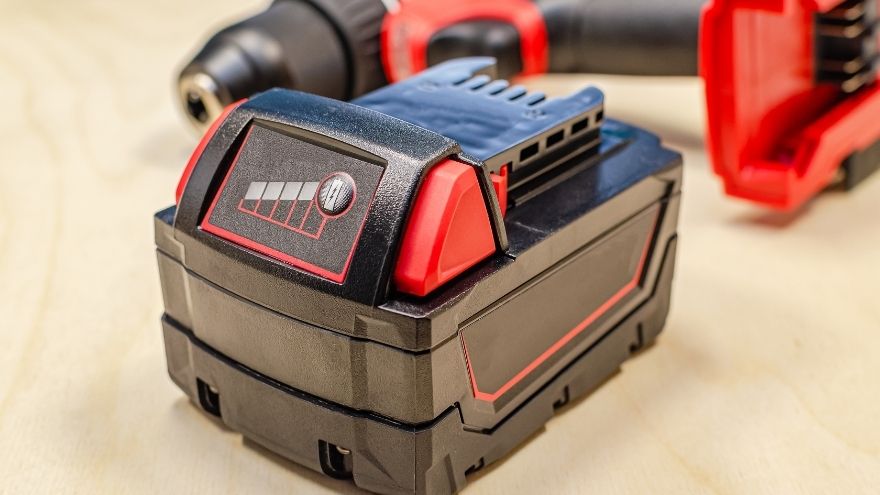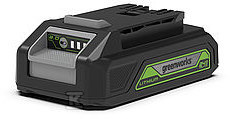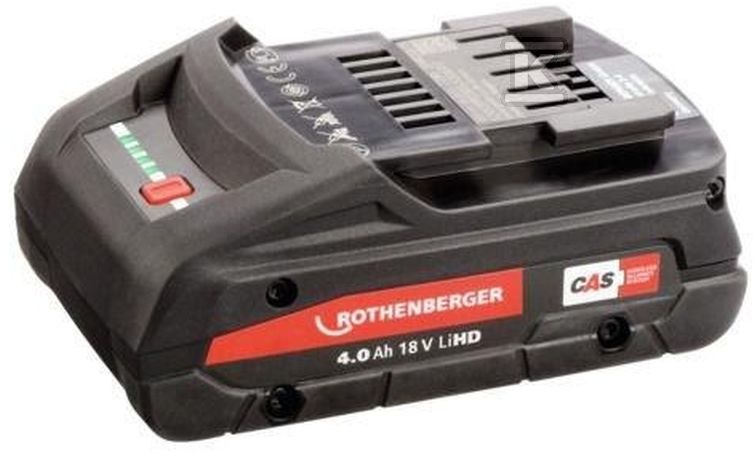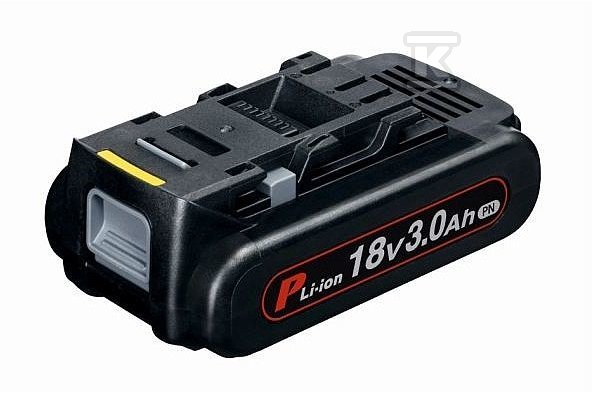Modern power tools used by service technicians are most often available in a mobile – battery version. To gain full comfort of work and a guarantee that the equipment will not fail in the least expected situation, you need to choose the right batteries for the type of equipment used. See what battery capacity will be optimal for a screwdriver. Learn tips on how to choose a battery for your power tools.

Check out the batteries at the Onninen wholesaler
Types of batteries for screwdrivers and other power tools – what do we distinguish?
Screwdrivers used during installation work should be compact, efficient and reliable. To ensure full comfort of work, you must have a set of batteries with you. Capacious cells ( batteries ) for replacement are the basis for working efficiently and without unnecessary delays.
 When it comes to cordless power tools, the most commonly used cell types are:
When it comes to cordless power tools, the most commonly used cell types are:
- Nickel-cadmium batteries (Ni-Cd) – are highly durable and resistant to low temperatures, but have a memory effect and are less ecological.
- Nickel-metal-hydride (Ni-MH) batteries – are more environmentally friendly than Ni-Cd, but discharge faster and have a shorter life.
- Lithium-ion batteries (Li-Ion) – light, efficient and without memory effect, although more expensive and less resistant to extreme temperatures.
- Lithium-polymer batteries (Li-Po) – are characterized by low weight and flexibility in forming, but are more susceptible to mechanical damage.
The type of battery is of great importance, at least in terms of battery life and battery charging time.
Selecting the right screwdriver battery based on voltage – is it important?
Before you decide to buy a charger and battery for a screwdriver, you need to carefully analyze several technical parameters. Not only the battery capacity is important, but also its operating voltage.
 Modern larger capacity cells are available in versions with different voltages:
Modern larger capacity cells are available in versions with different voltages:
- 12V batteries – are light and handy, but have a smaller capacity. They are suitable for small assembly and installation work.
- 18V batteries – a good choice for impact screwdrivers. The higher power is useful for drilling in hard surfaces. Such a battery also guarantees good torque.
- 20V batteries – designed for professional tools. You can work for several hours on such a battery without having to charge the cell.
Depending on the manufacturer of battery cells and power tools, you can also choose 24 and 36 V batteries. These are exceptionally powerful batteries for professional equipment that can be used intensively throughout the working day.
Once you have purchased the right type of battery and matched the voltage and current correctly, be sure to also order chargers for power tools . You will find them in our wholesale offer. A good charger is essential. Your efficiency at work depends on it.
How much capacity should a screwdriver battery have? Every installer needs to know this!
Advanced power tools draw a lot of current, especially during intensive work. To ensure that the battery allows for comfortable operation, try to choose cells with a larger capacity.
Power tool batteries can be divided into three categories based on capacity:
Low capacity batteries (1.3-2.0 Ah)
Suitable for light and occasional work, such as furniture assembly or screw tightening. Screwdrivers with such batteries are usually lighter. In addition, the smaller capacity guarantees quick charging.
Medium capacity batteries (2.0-4.0 Ah)
 This is a universal solution for people who use a screwdriver for more demanding home or renovation work. They allow for longer operating time without significantly increasing the weight of the device. In this case, you will experience a slightly longer charging time than for lower capacity batteries. However, this can be optimized - all you need to do is get efficient chargers that do not negatively affect the life of the cell.
This is a universal solution for people who use a screwdriver for more demanding home or renovation work. They allow for longer operating time without significantly increasing the weight of the device. In this case, you will experience a slightly longer charging time than for lower capacity batteries. However, this can be optimized - all you need to do is get efficient chargers that do not negatively affect the life of the cell.
High capacity batteries (4.0-6.0 Ah and more)
Designed for professional use and work requiring high intensity, e.g. drilling in metal or concrete. Although they increase the weight of the screwdriver, they guarantee maximum efficiency. For such cells, you need really fast chargers that will be able to efficiently replenish the missing energy.
Regardless of the battery capacity you choose, you need to pay attention to how long it takes to fully charge the cell. You will be able to charge standard versions of batteries with a capacity of 4 Ah or more in less than 30 minutes - provided that the charger model is well matched.